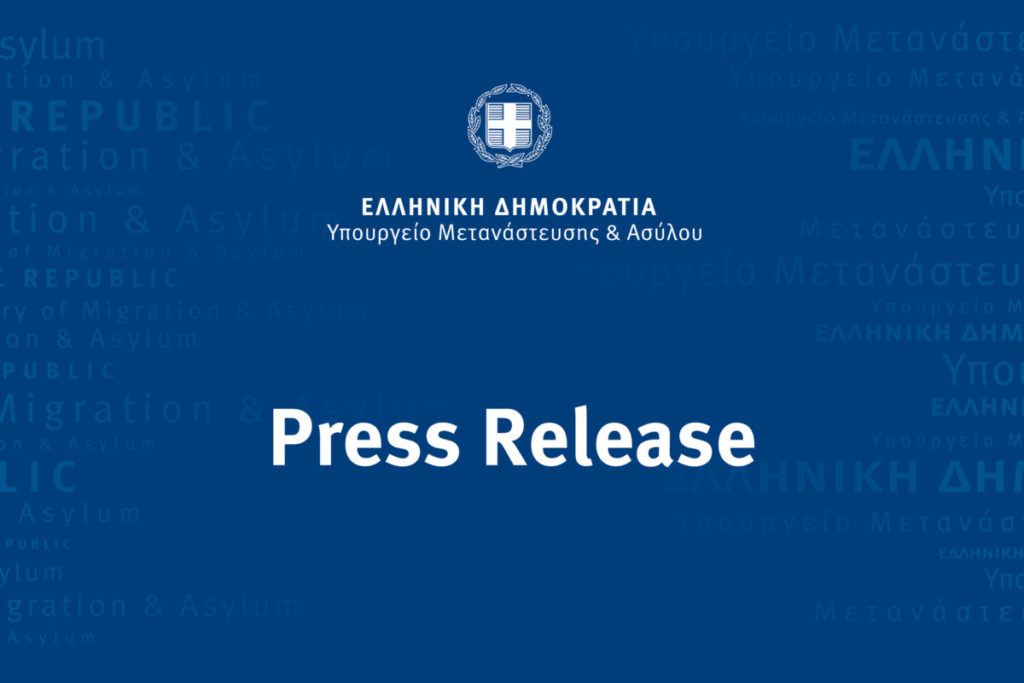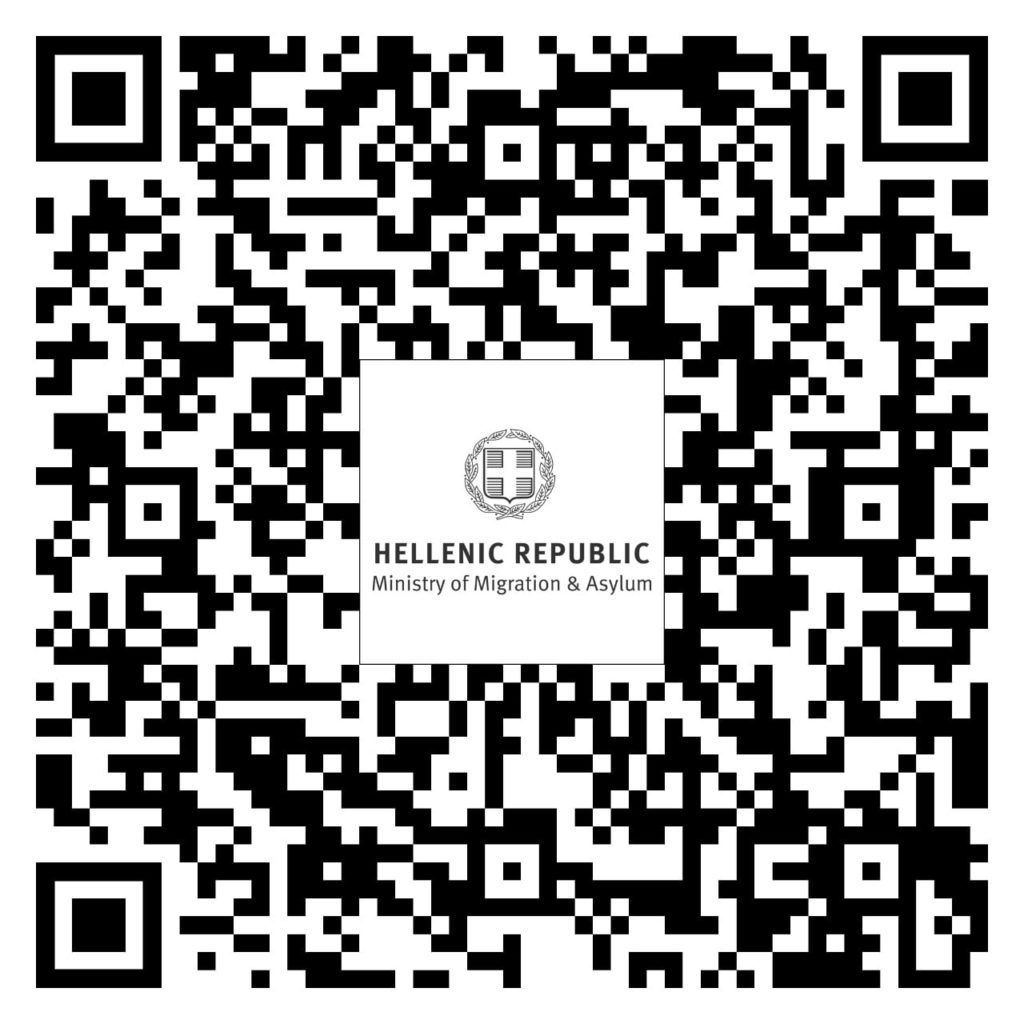A letter was sent to the British newspaper The Guardian by the Minister of Migration and Asylum, Mr. Notis Mitarachi and the Deputy Minister, Mrs. Sofia Voultepsi regarding an article that presents a distorted picture of the Migration situation in our country and the residence status of the Afghans who found refuge in Greece after the capture of Kabul by the Taliban.
The letter responds to a publication entitled “Destitution is almost inevitable’: Afghan refugees in Greece left homeless by failed system”, which presents the case of Mohammad Ashraf Rasooli, who along with his family found refuge in Greece on October 1, 2021 as part of a group of 117 Afghan judges and their families. Upon his arrival in Greece, he was granted a visa and moved to an apartment made available to his family.
As clarified in the letter of Mr. Mitarachi and Mrs. Voultepsi, ” The article seems to conflate two separate issues, namely the legal status of and reception offered to asylum seekers and the integration of recognized refugees, and unfortunately in the end fails to give an objective picture of either”.
It is also noted that: “The article also fails to remind the readers that refugees, like Mr. Rasooli, were invited to Greece by the government under an extraordinary humanitarian visa scheme after the fall of Kabul, where more than 800 Afghan nationals, including female Members of Parliament and justices, have been safely admitted to Greece. At a time where many other countries spend months or even years reviewing applications.”
“The Ministry has decided to offer accommodation, usually available only to asylum seekers, to all those admitted from Afghanistan, irrespective of their decision to seek international protection in Greece” it is noted and that “as a holder of a valid visa, Mr. Rasooli run absolutely no risk of being apprehended. It is indeed sad if he “feared to go outside in case his papers were checked”. But his fear is unfounded”.
With reference to Mr. Rasooli’s case, it becomes clear that: “he chose to apply for asylum in Greece 7 months after his arrival in Greece, though he could have done so earlier. This decision is fully respected. Yet, the Greek authorities had been instructed to prioritize the handling of asylum cases of Afghan evacuees. The decision by Mr. Rasooli not to apply for international protection immediately upon arrival did not in any manner place him or his family in limbo, as the Greek authorities extended the validity of his visa for the whole period. Mr. Rasooli and his family were accommodated throughout this period in an apartment”.
As it becomes clear, “upon applying for asylum, Mr. Rasooli automatically obtained the full spectrum of rights granted to asylum seekers, including a tax number and a social security number. He was served a positive decision within 90 days from application. Since then, he continues to reside in accommodation, normally available to asylum seekers, despite the fact that those recognized as refugees are obliged to leave such accommodation 30 days from recognition. No action has been taken by the authorities to remove him and his family from the apartment”.
Last but not least the letter mentions: “Overall, the piece grossly underplays the efforts undertaken over the last 3 years in asylum and integration management by the Greek authorities, despite the well-known fiscal constraints and financial challenges”.
In detail, the letter from Noti Mitarachi and Sofia Voultepsi’s to the Guardian:
Dear Editor,
We read an article, written by Katy Fallon, entitled “Destitution is almost inevitable: Afghan Refugees left homeless by failed system”, which appeared on the Guardian’s website on November 30, 2022 and wanted hereby to respond.
We should note at the forefront, that Ms. Fallon set an unrealistically tight deadline for comments to the Ministry, and we were not given the opportunity to meet with the author to present our view in detail.
The article seems to conflate two separate issues, namely the legal status of and reception offered to asylum seekers and the integration of recognized refugees, and unfortunately in the end fails to give an objective picture of either.
We would like to begin by what we see as an important omission in the article. Refugees, like Mr. Rasooli, were invited to Greece by the government under an extraordinary humanitarian visa scheme after the fall of Kabul, where more than 800 Afghan nationals, including female Members of Parliament and justices, have been safely admitted to Greece. At a time where many other countries spend months or even years reviewing applications.
We would like to point out that Mr. Rasooli and his family were evacuated to Athens on October 1, 2021, forming part of a group of 117 Afghans judges and their families. Upon arrival in Greece, he was granted a visa, and was transferred to an apartment made available to his family. The Ministry has decided to offer accommodation, usually available only to asylum seekers, to all those admitted from Afghanistan, irrespective of their decision to seek international protection in Greece.
At the same time, the Ministry actively liaises with diplomatic missions to facilitate the process of resettlement for family reunification for Afghan evacuees to third States. Pending the process of resettlement, the legal status of Afghan evacuees is fully secured in Greece. As a holder of a valid visa, Mr. Rasooli run absolutely no risk of being apprehended. It is indeed sad if he “feared to go outside in case his papers were checked”. But his fear is unfounded.
Furthermore, Mr. Rasooli chose to apply for asylum in Greece 7 months after his arrival in Greece, though he could have done so earlier. This decision is fully respected. Yet, the Greek authorities had been instructed to prioritize the handling of asylum cases of Afghan evacuees. The decision by Mr. Rasooli not to apply for international protection immediately upon arrival did not in any manner place him or his family in limbo, as the Greek authorities extended the validity of his visa for the whole period. Mr. Rasooli and his family were accommodated throughout this period in an apartment.
Upon applying for asylum, Mr. Rasooli automatically obtained the full spectrum of rights granted to asylum seekers, including a tax number and social security number. He was served a positive decision within 90 days from application. Since then, he continues to reside in accommodation, normally available to asylum seekers, despite the fact that those recognized as refugees are obliged to leave such accommodation 30 days from recognition. No action has been taken by the authorities to remove him and his family from the apartment.
To suggest that between his arrival and his recognition as a beneficiary of protection, Mr. Rasooli was in any limbo is nothing short of factually erroneous.
Turning to the comments by Ms. Fallon on integration of beneficiaries, we are perplexed by the lack of any reporting on the significant improvements made to the leading HELIOS program, which is run in cooperation with the International Organization for Migration (IOM). The HELIOS is as a cutting-edge program encompassing rental subsidy, language courses and support in accessing the labor market. The monthly rental subsidy has now been increased by 30% and its duration has been extended from 6 months to 12 for every beneficiary of the program. Every effort is made by Greek authorities to lift bureaucratic barriers. As reported in the piece, there is targeted support to beneficiaries by IOM when they encounter obstacles. On a related note, Greece has secured funds under the Recovery and Resilience Fund for integration-related actions, including the training of beneficiaries so as to enable access to crucial labor markets in the Greek economy, such as agriculture, construction and tourism.
Finally, reference to beneficiaries turning to collecting waste cardboard is unfortunate, especially when there is ample need in various key sectors of the economy, such as agriculture or tourism, for workforce, with higher pay available.
Overall, the piece grossly underplays the efforts undertaken over the last 3 years in asylum and integration management by the Greek authorities, despite the well-known fiscal constraints and financial challenges.
Yours sincerely,
Notis Mitarachi Sofia Voultepsi
Minister Deputy Minister
Powered By EmbedPress


